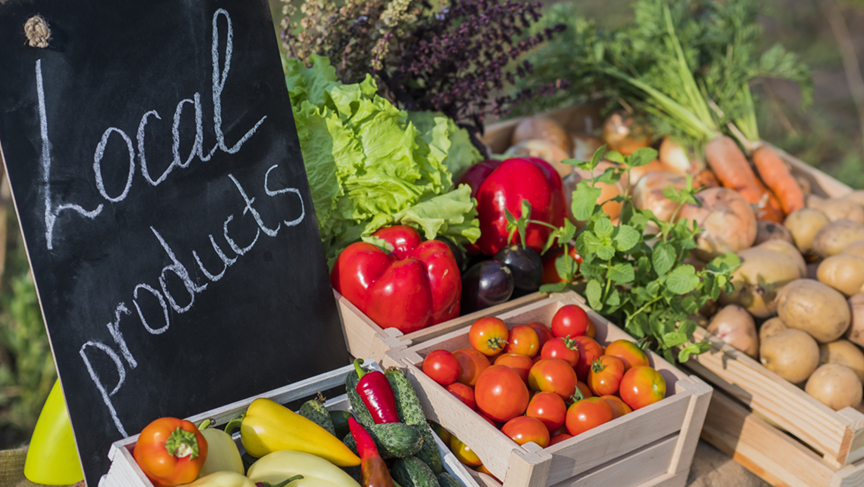
What are the benefits and challenges of creating recipes from local ingredients?
Learners in a Grade 9 Food and Nutrition class spent a month inquiring about local foods with the goal of learning the environmental impact of importing food and learning how to create and cook recipes using local foods. They began by exploring their favourite meals through conversations with their families, dissecting where the ingredients came from, and charting how far the food had travelled to reach their tables.
They invited an Elder to help them identify and learn about plants indigenous to Manitoba and their traditional Indigenous meals. They visited Aurora Farm, the Bruce D. Campbell Farm and Food Discovery Centre, and FortWhyte Farms to understand the issues and diverse viewpoints related to organic and industrialized farming, and they learned about what food is grown and sold locally. They also learned about different preservation methods for food such as drying, canning, pickling, and freezing.
From there, the learners worked in groups with the goal of writing a cookbook of recipes using local foods to share with their friends and family. As a class, they developed a list of local ingredients that could be used in recipes. They also co-constructed the criteria for the recipes, considering how they would define “local” and any exceptions for ingredients that might be essential to the characteristic of a dish but might not be found in Manitoba. Each learner was encouraged to create recipes that might have importance to them (for personal, family, or cultural reasons). In groups of four, learners tested their recipes, working through differences as they revised them based on feedback from their group. They then shared their recipes in a culminating feast for the class. When the timetable allowed, learners invited a friend or family member to a Local Foods Lunch, where they shared their learning, their cookbooks, and their food with their guests.
After the feast or café, the learners chose the method in which they would share what they had learned about the environmental impact of their food choices, the joys and challenges of using local ingredients, and how their learning might change their cooking and eating habits going forward. Their choices ranged from standard written responses to websites and infographics, and to art pieces with reflections attached.